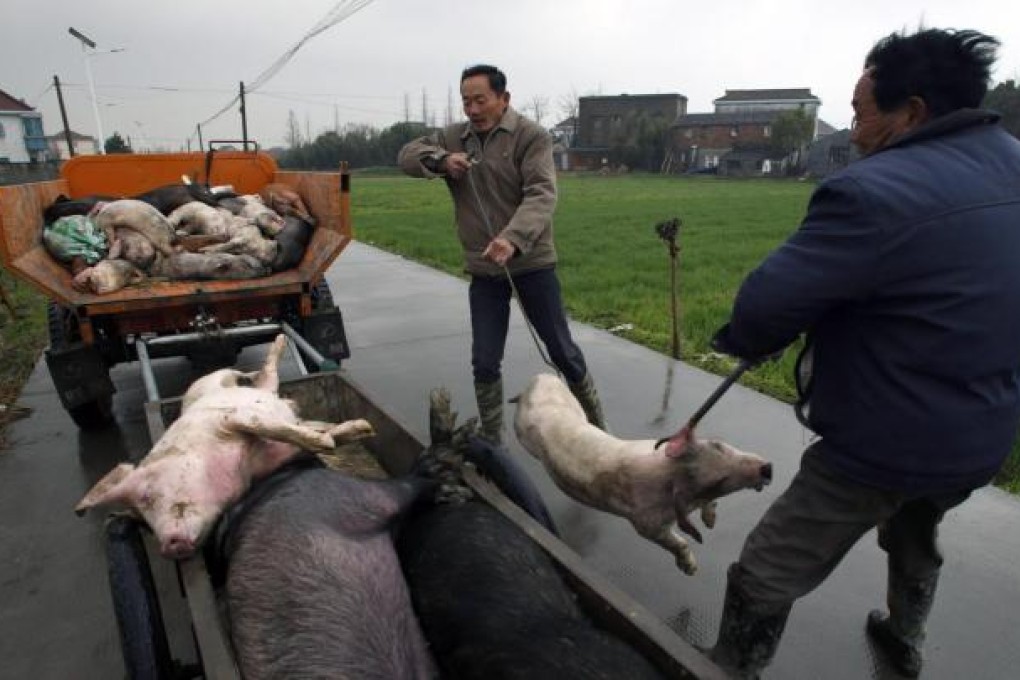More than 7,500 dead pigs found in Shanghai's Huangpu River
As Shanghai workers retrieve carcasses from the Huangpu, the party chief in Jiaxing - the source of dumped stock - steps down

The number of dead pigs found in Shanghai's Huangpu River rose to more than 7,500 as workers retrieved another 944 yesterday, Shanghai's municipal government said.
In addition to closer monitoring of water quality, municipal food supervisors launched spot checks on pork in markets to prevent the use of dumped pig carcasses.
In a statement on Sina weibo yesterday, the government insisted that water quality was normal, and no pork of unknown origin has been found in markets. The area where the carcasses were found was the source for nine water plants, which provide 22 per cent of the municipality's drinking water.
It said all the pigs retrieved had either been incinerated or buried in seven-metre deep holes with quicklime.
Meanwhile, the neighbouring city of Jiaxing, the source of the carcasses, said it had a new Communist Party chief.
At a Jiaxing government meeting on Wednesday, the resignation of the city's party secretary, Li Weining, was announced. He will become the Zhejiang provincial government's secretary general and be succeeded by Jiaxing mayor and deputy party chief Lu Jun.